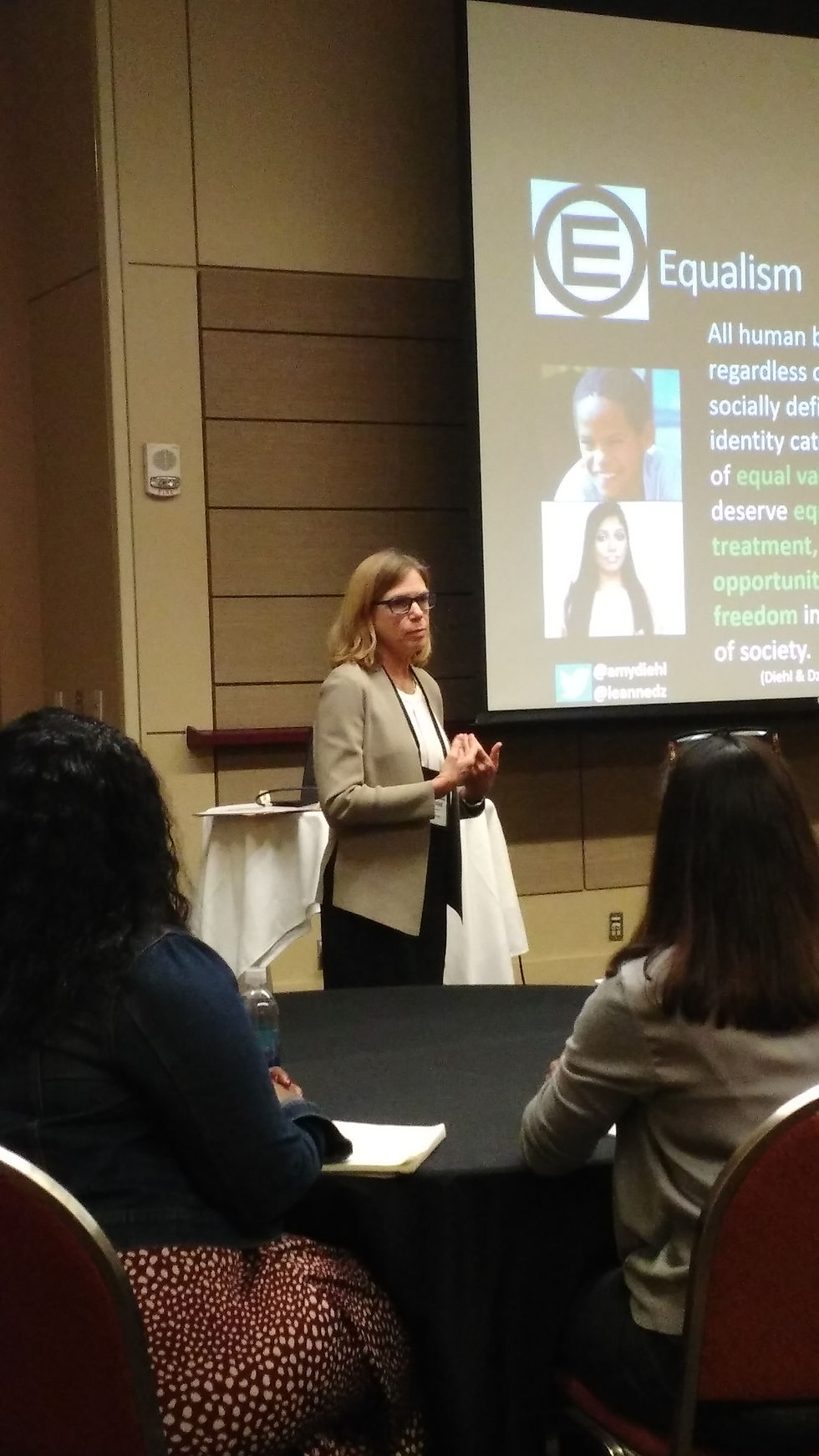Glass Walls: Shattering the Six Gender Bias Barriers Still Holding Women Back at Work
- Brittany Larsen
- May 18, 2023
- 4 min read
This interview with authors Amy Diehl and Leanne M. Dzubinski is exclusive to Livlyhood.com. I'm so thankful these amazing researchers and authors were willing to share about their new book!
I love that you emphasize right on the cover that there are STILL barriers for women at work. Since there are now a lot of books on this topic, what unique point of view did you both think you added to this important conversation?

Dr. Amy Diehl: Glass Walls is based on our original research in which we discovered the core barriers—there are six—that make up this nebulous concept of gender bias. We didn’t just pick and choose a few obstacles to highlight. It is a systematic, research-based overview of the six barriers and their subcomponents. In the book, we tell the stories of women—both famous and everyday women—who have experienced each barrier. And each chapter provides solutions to the specific barriers for leaders, workplace allies, and the women themselves. It is a comprehensive guidebook.

Dr. Amy Diehl
We wrote the book we wish we had when starting out in the workforce. We think that readers will want to keep it on their bookshelves and use it as a reference throughout their careers.

Dr. Amy Diehl speaking at the Social Justice and Social Inclusion Conference at Shippensburg University
How can we encourage men to read and research about this topic? Dr. Amy Diehl: We love this question. It is so important to get men on board with this conversation as it will take everyone working together to overcome the pernicious problem of workplace gender bias. While gender bias is obviously so harmful to women’s lives and careers, men should understand that it is also harmful to their own lives and careers. Preventing women from contributing equally at work thwarts solutions to societal problems, precludes organizations from truly thriving, and keeps men locked into unhelpful gender stereotypes, limited perspectives, and rigid work requirements. In the book, we tell the story of biochemist Dr. Katalin Karikó, who was instrumental in the development of the mRNA Covid-19 vaccine. She encountered significant gender bias while doing her mRNA research at University of Pennsylvania in the mid-90s and early 2000s. Yet she persisted and her work set the foundation for the fast development of the first COVID-19 vaccines.
While Dr. Karikó persevered, think about how much more successful she could have been if she were just supported at work. Due to gender bias and discrimination, many women are held back on their potential influence or forced to drop out of the workforce altogether. And it becomes all of society’s loss, including men’s. If a reader has just one takeaway from reading your book, what would you want it to be? Dr. Amy Diehl: Women should not take gender bias personally. It unfortunately still happens to all of us. But it is a completely solvable problem. Leaders, allies, men, and women can use the strategies outlined in Glass Walls to shatter workplace gender bias and create a gender-equitable world. I love the section at the end about taking charge of your success. How can we read about this topic and feel in control instead of depressed about the environment women have to deal with?

Dr. Leanne Dzubinski speaking at the Advancing Women in Leadership Conference (AWIL) in 2019
Dr. Leanne Dzubinski: An important piece for Amy and me is to leave readers with a sense of hope, not despair. While the whole problem is too big for anyone to solve alone, we want each woman to know that it is not personal to her and that it’s possible to take steps to improve your situation. Women are so conditioned to put others first and neglect our own well-being that we want to turn that message on its head.
Amy and I still encounter bias in our work lives, too, and we joke that we don’t really want to live our own research. Having strategies and options helps all women keep from feeling trapped and be truly in control of their own destiny.

Dr. Leanne Dzubinski speaking at the Lausanne Researcher's Conference held in Nairobi Kenya
What's one change women can help influence a shift in their workplaces?
Dr. Leanne Dzubinski: We are very intentional in our book to communicate that women are not the problem! Bias has been built into ordinary workplace functions, many of which appear gender-neutral but are not. The primary responsibility for change lies with organizational leaders. Still, women can be part of the solution. But it’s not about changing themselves to fit in. It’s about helping others see their value. We’d recommend connecting with a few other women at work.
Use Glass Walls to learn how bias may be affecting you and your women colleagues. Then diagnose one problem area in your workplace and band together to address it. For example, if women aren’t being heard in meetings, start repeating each other’s points. If women are targets of sexist remarks, speak up on each other’s behalf to say, “That’s not right. Comments like that aren’t acceptable and are irrelevant to our work.”
The one thing that each woman can do will differ. But the most important one thing to do is do something.




Comments